The Psychology Behind Addiction 101: Not Just Drugs and Alcohol – The sneaky Lesser Known Addictions Revealed 🎮🍫
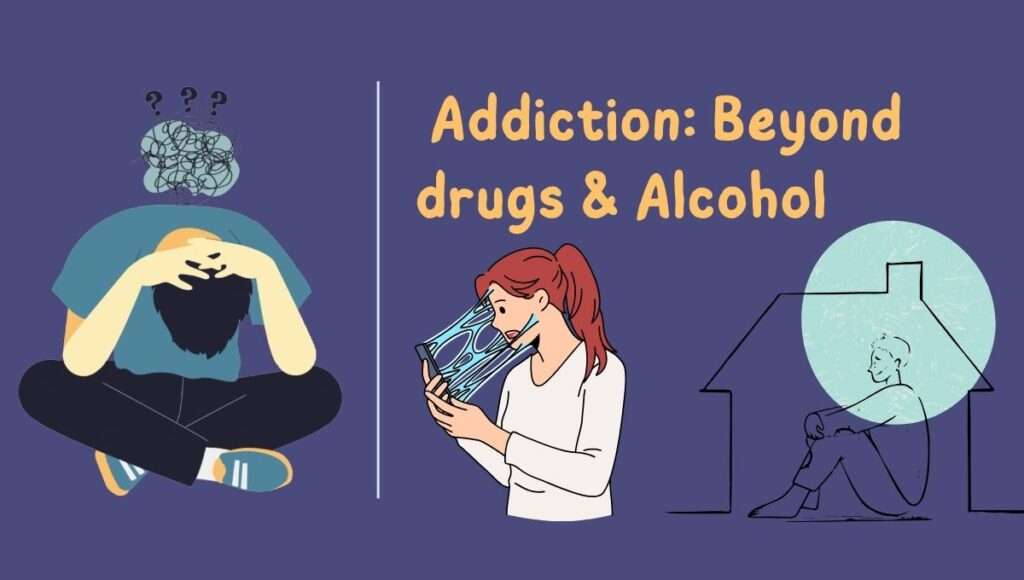
Hey there,🙋♂️
If someone asks you, “What comes to mind when you hear the word ‘addiction’?”, you’d probably think of drugs or alcohol, right? Well, that’s what most of us would think. But what if I told you that addiction stretches far beyond just these substances? 🤔
Addiction is like that sneaky little gremlin that hides in the shadows, often going unnoticed until it’s too late. It’s not just about those notorious substances we often hear about in movies or news. It’s way more intricate and, dare I say, fascinating (in a very academic sense, of course). 🧐
In today’s deep dive, we’re going to unravel the mysteries behind addiction, especially those lesser-known ones that don’t get the limelight they deserve. So, buckle up, because we’re about to embark on a journey into the human mind and its intricate relationship with addiction. 🚀
The Brain and Addiction
Ever had that irresistible urge to eat just one more cookie, even though you’re full? Or that compelling need to check your phone every few minutes, even when you’re in the middle of a super interesting conversation (like this one)? 😜 Well, that’s your brain playing tricks on you!
Our brain is a marvel, but it can also be our own worst enemy when it comes to addictive behaviors. Here’s the deal: our brain LOVES rewards. I mean, who doesn’t? 🎁 When we do something pleasurable, a neurotransmitter called dopamine is released, giving us that warm, fuzzy feeling of happiness. It’s like getting a gold star in kindergarten all over again! 🌟
But here’s the catch: sometimes, our brain craves that dopamine rush a bit too much. And that’s where addiction sneaks in. Whether it’s substances like drugs or alcohol or behaviors like gaming or shopping, they all stimulate our brain’s reward system, making us come back for more, again and again.
It’s like being on a never-ending merry-go-round 🎠, where the ride is thrilling but leaves you dizzy and disoriented if you don’t hop off in time.
Beyond Drugs and Alcohol: Lesser-Known Addictions
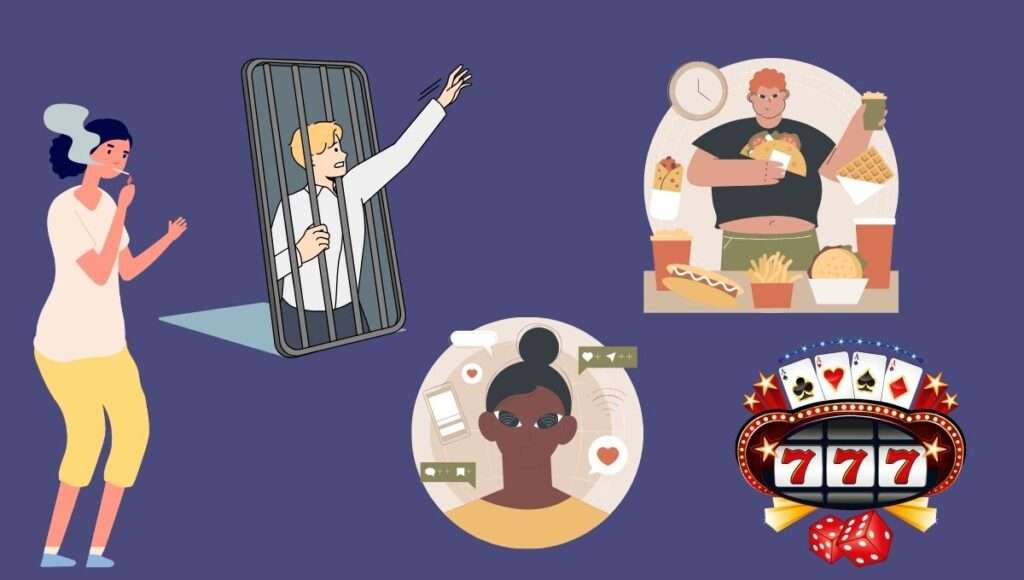
When we think of addiction, images of dark alleyways, shady characters, and substance abuse might pop into our minds. But addiction isn’t just limited to the “big bad wolves” like drugs and alcohol. There are many other wolves in sheep’s clothing, lurking around, often unnoticed. Let’s shed some light on them. 💡
Raise your hand if you’ve ever said, “Just one more episode,” and ended up binge-watching an entire season. 🙋♂️ Or perhaps you’ve found yourself mindlessly scrolling through social media, only to realize hours have passed. Welcome to the world of digital addiction!
In today’s tech-savvy era, our screens have become our best friends (or frenemies?). The dopamine rush we get from likes, comments, and shares is eerily similar to that from substances. And just like that, our devices have us wrapped around their little digital fingers. 📱
Ever had a bad day and found solace in a tub of ice cream? 🍦 Or maybe you can’t resist the allure of that chocolate bar, even though you’re on a diet. Food, especially the sugary, fatty, and salty kinds, can be incredibly addictive. It’s not just about “eating your feelings”; it’s about the brain seeking comfort in these foods, leading to a cycle of overeating and guilt.
This is a vast category, encompassing everything from shopping sprees 🛍️ (retail therapy, anyone?) to the adrenaline rush of gambling 🎲. These behaviors might seem harmless at first, but they can take over our lives if we’re not careful. The thrill, the anticipation, and the dopamine hit can make them as addictive as any drug.
Phew! That was a lot to digest (pun intended 😂). Addiction is a complex beast, and it’s essential to recognize its many faces. By understanding the psychology behind these lesser-known addictions, we can be better equipped to tackle them head-on.
Why Do We Get Addicted?
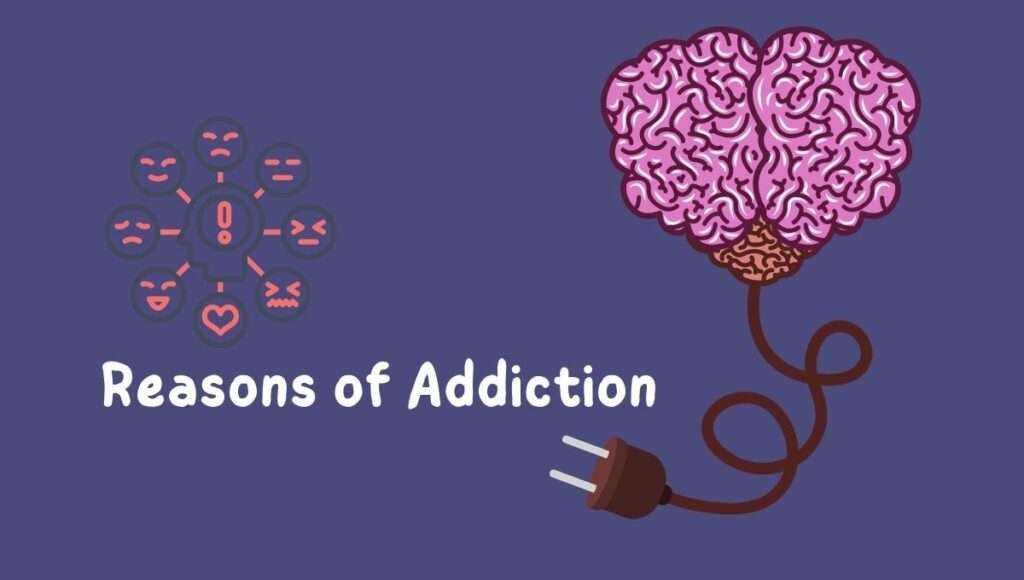
Ever wondered why some people can have just one piece of chocolate 🍫 while others can’t stop until the entire bar is gone? Or why some can play a video game for 30 minutes and others for 5 hours straight? 🎮 The reasons behind why we get addicted are as varied as our personalities, but let’s try to unravel this mystery.
- Stress: Life’s tough, right? For many, the daily grind, personal issues, or past traumas can lead to heightened stress levels. And guess what? Our brain often seeks out addictive behaviors or substances as a temporary escape. It’s like a mini-vacation from reality, but the problem is, reality always comes knocking back. 🚪
- Mental Health: Conditions like depression, anxiety, or ADHD can make individuals more susceptible to addiction. It’s not about being weak-willed; it’s about the brain seeking solace in places it shouldn’t. 🧠
2. Societal Factors:
- Peer Pressure: “Come on, just try it once!” Sounds familiar? Peer pressure isn’t just a teen thing. Adults face it too. The need to fit in or be part of the “cool gang” can sometimes lead us down paths we never intended to tread. 🚶♂️
- Societal Norms: In some cultures or societies, certain addictive behaviors are normalized. Think of the workaholic culture in corporate sectors or binge drinking at college parties. When everyone’s doing it, it’s hard to see it as a problem, right? 🤷♂️
- Role of Media: Ever noticed how movies and TV shows often glamorize addiction? The brooding hero with a drinking problem or the fun-loving character always with a joint in hand. Media plays a subtle yet powerful role in shaping our perceptions. 🎥
Understanding the “why” behind addiction is the first step towards addressing it. It’s not about pointing fingers or playing the blame game. It’s about compassion, understanding, and seeking help when needed.
The Impact of Lesser-Known Addictions
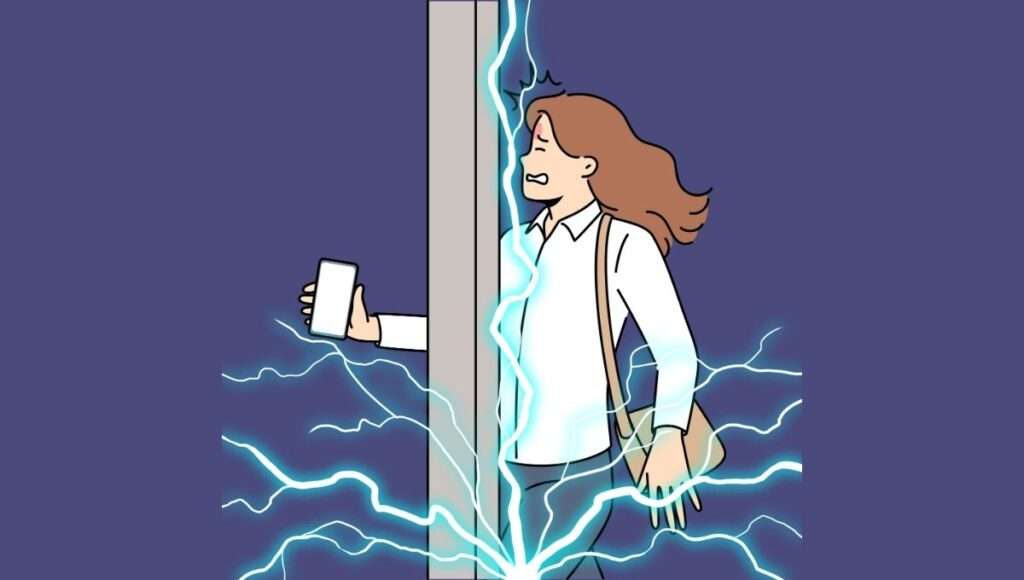
When we talk about addiction, it’s easy to think of the dramatic consequences often portrayed in movies: broken families, lost jobs, or deteriorating health. But the impacts of these “silent” addictions can be just as profound, albeit in more subtle ways. Let’s break it down. 🧩
1. Digital Addiction:
- Mental Health: Ever felt anxious when you can’t find your phone? Or a tad bit jealous scrolling through someone’s “perfect” life on Instagram? Digital addiction can lead to increased anxiety, depression, and feelings of loneliness. It’s ironic, right? We’re more connected than ever, yet we’ve never felt so alone. 📱😔
- Physical Health: Those endless hours hunched over screens? They’re doing a number on our posture, eyesight, and even sleep patterns. Not to mention the sedentary lifestyle contributing to a host of other health issues. 🛌👀
2. Food Addiction:
- Physical Health: Overindulging in sugary, salty, or fatty foods can lead to weight gain, diabetes, heart diseases, and more. It’s not just about the extra calories; it’s about the nutritional void these foods leave, depriving our bodies of essential nutrients. 🍔➡️🥗
- Mental Well-being: The cycle of binge eating followed by guilt can take a toll on one’s self-esteem and body image. It’s a vicious cycle: you eat to feel better, then feel worse because you ate. 🔄
3. Behavioral Addictions:
- Financial Strain: That shopping spree might give a momentary high, but the credit card bill at the end of the month? Not so much. Behavioral addictions like shopping or gambling can lead to significant financial stress. 💸
- Relationships: Ever lied to a loved one about how much you spent shopping? Or how much time you spent gaming? These addictions can strain relationships, leading to trust issues and conflicts. 💔
The impacts of these addictions might not be as “loud” as those of drugs or alcohol, but they’re significant nonetheless. They creep into our lives, affecting our health, happiness, and relationships in ways we might not even realize.
But here’s the good news: recognizing the problem is half the battle won. 🌈 The next step? Taking action to overcome these challenges. Ready to dive into some actionable steps to break free from these addictions?
Steps to Recognize and Overcome These Addictions

Knowledge is power, right? 🧠💪 But knowing about a problem and doing something about it are two different ball games. So, let’s dive into some actionable steps to help you (or someone you know) navigate the maze of addiction.
1. Self-awareness and Acceptance:
The first step to solving any problem is admitting there is one. It sounds cliché, but it’s true. Recognizing and accepting that you might be facing an addiction is crucial. It’s like turning on the GPS when you’re lost; you need to know where you are to figure out where you’re going. 📍
2. Seek Professional Help:
There’s no shame in asking for help. In fact, it’s brave. Whether it’s a therapist, counselor, or support group, having someone to guide you can make the journey less daunting. Think of them as your personal tour guide through the tricky terrains of your mind. 🗺️🧘♂️
If you’re battling digital addiction, maybe start with a digital detox or set specific “no screen” times during the day. For food addictions, try keeping a food journal or setting clear dietary guidelines. It’s all about creating a structure that helps you stay on track. 📝
4. Replace Bad Habits with Good Ones:
Instead of mindlessly scrolling through social media, how about picking up a book? 📖 Or replacing that daily sugary snack with a fruit? 🍎 The idea is to redirect the energy from a negative habit to a positive one.
5. Stay Connected:
Remember, you’re not alone in this. Stay connected with loved ones, join support groups, or simply share your journey with someone you trust. Sometimes, just talking about it can lighten the load. 🤗
6. Celebrate Small Wins:
Overcoming addiction isn’t an overnight thing. It’s a journey with ups and downs. So, celebrate the small victories along the way. Managed a day without binge eating? That’s a win! 🎉 Stayed off social media for an entire weekend? Throw yourself a mini-party! 🥳
Remember, dear reader, the path to overcoming addiction is like a marathon, not a sprint. There will be challenges, but with determination, support, and the right tools, you can cross that finish line. 🏁
So, what’s your take? Ready to take the reins and steer your life in a positive direction?
Conclusion

Navigating the intricate web of addiction is no easy feat. Whether it’s the siren call of our screens, the comforting embrace of our favorite junk food, or the thrill of a shopping spree, these lesser-known addictions can be just as challenging to overcome as the more “traditional” ones. But here’s the silver lining: understanding is the first step towards healing. 🌱
By delving deep into the psychology behind addiction and recognizing its many faces, we empower ourselves to make informed choices. It’s not about casting judgment or living in denial; it’s about embracing our vulnerabilities and seeking the tools and support to rise above them. 🌟
To everyone reading this, remember: you’re not alone in your journey. Whether you’re battling an addiction, know someone who is, or are simply here to understand, there’s strength in knowledge and community. Let’s continue to learn, grow, and support one another. After all, isn’t that what life’s all about? 💪❤️
Let’s wrap this up and look at some FAQs that might be popping up in your mind. Shall we? 😊📚
FAQs
Can you really be addicted to something like shopping or gaming?
Absolutely! While these might not be “substances” in the traditional sense, they can stimulate the brain’s reward centers in similar ways. It’s all about the dopamine rush and the cycle of pleasure and craving. So, whether it’s a new pair of shoes or reaching the next level in a game, the brain can crave these experiences just like it might crave nicotine or sugar. 🎮👠
How do I know if I’m addicted or just really passionate about something?
Great question! Passion is about genuine love and interest in something, while addiction often comes with negative consequences. If your behavior is affecting your health, relationships, or other aspects of your life, it might be time to re-evaluate. Remember, it’s all about balance. ⚖️
Can you overcome addiction without professional help?
While some people might manage to break free from addiction on their own, seeking professional help can provide valuable tools and support. Think of it like climbing a mountain: sure, you can try to scale it solo, but having a guide can make the journey safer and more manageable. 🏔️
Are there any early signs of addiction I should be aware of?
Definitely! Changes in behavior, mood swings, secrecy, or spending an excessive amount of time/money on addictive behavior can be red flags. It’s always better to address these signs early on rather than waiting for things to escalate. 🚩
How can I support a loved one who’s battling addiction?
Being there for them is key. Listen without judgment, encourage them to seek help, and educate yourself about addiction. Remember, it’s a journey for both the person facing the addiction and their loved ones. Together, you can navigate the challenges and come out stronger. 💪❤️
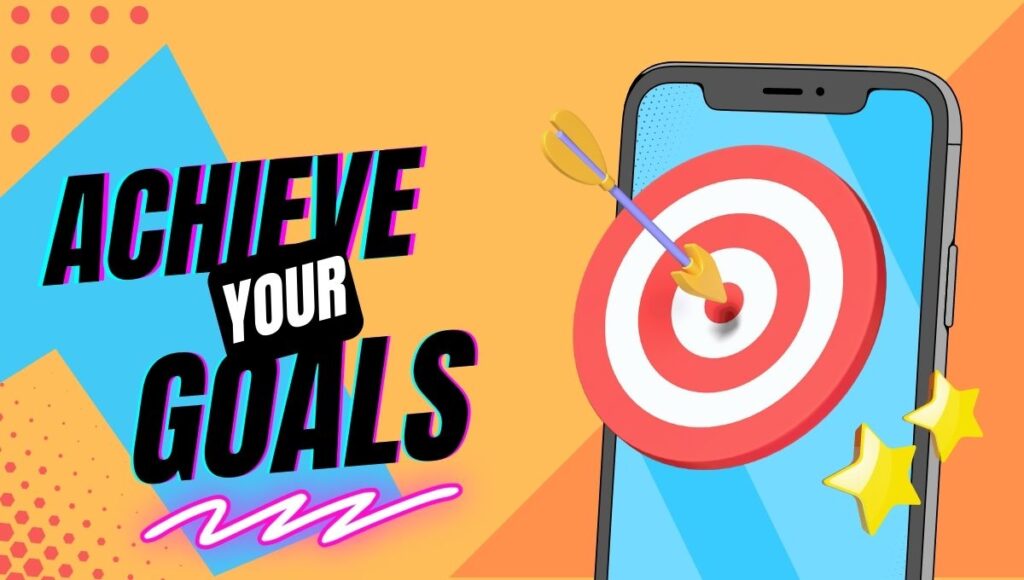
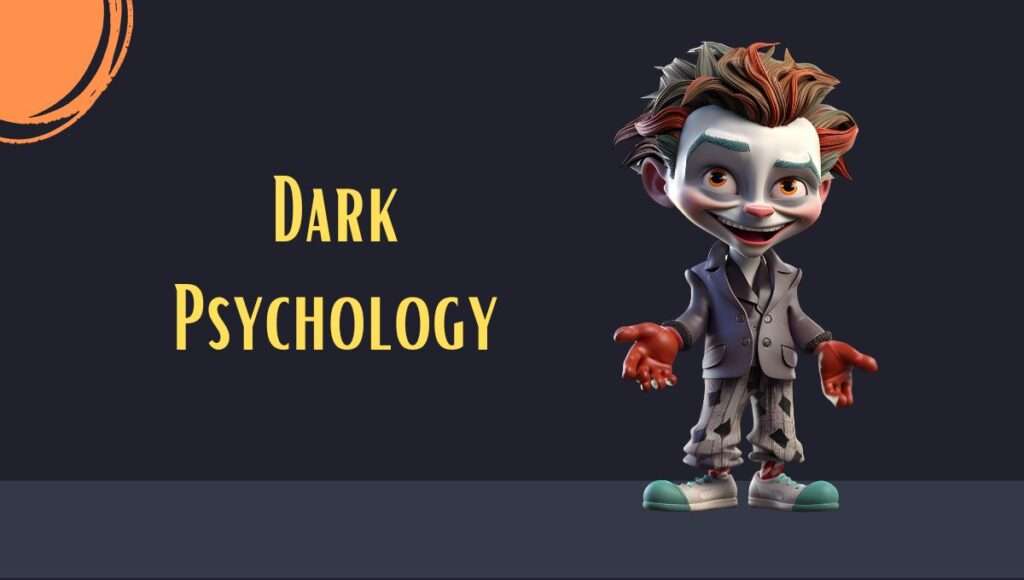
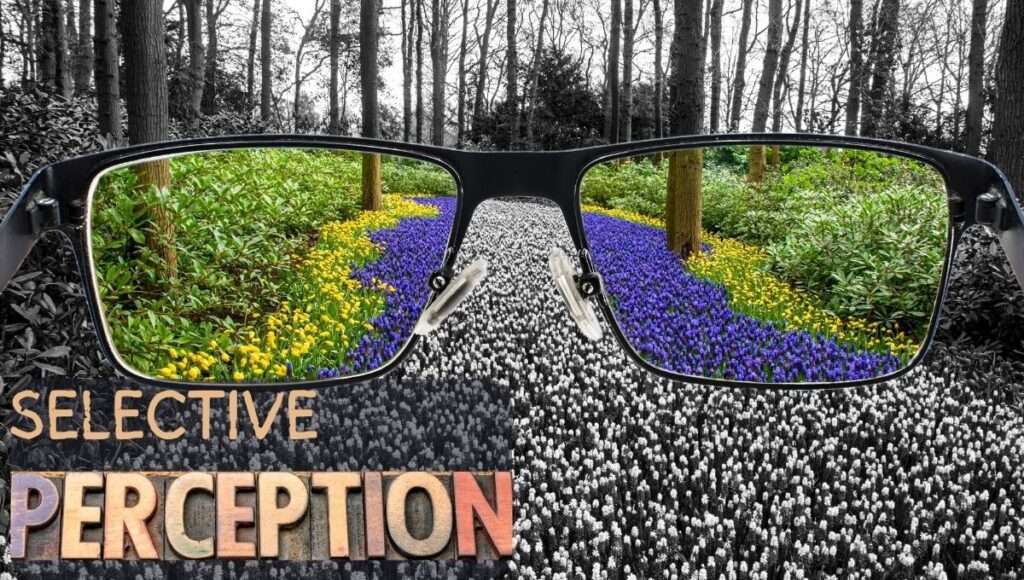
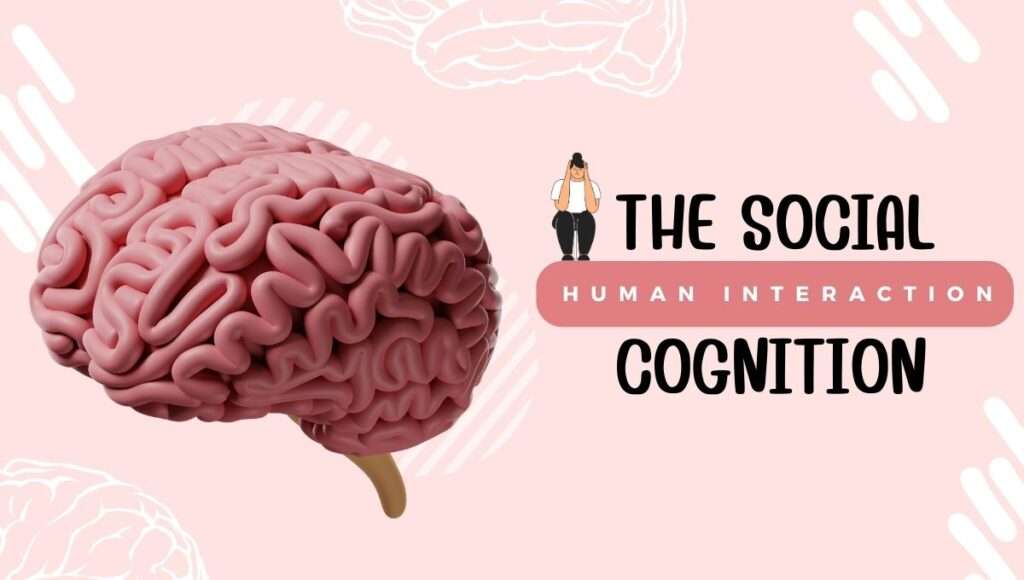
I love the way of your writing. Btw I am also in habit of just scrolling and scrolling through Instagram reels😅. Just trying to read a book as you mentioned to shift my focus to something useful.. Thank you for such a good article 🙌
Im glad that i can help you thank you for giving me the opportunity.
Normally I do not read article on blogs however I would like to say that this writeup very forced me to try and do so Your writing style has been amazed me Thanks quite great post
Fantastic site. A lot of helpful info here. I’m sending it to some buddies ans additionally sharing in delicious. And naturally, thanks on your sweat!